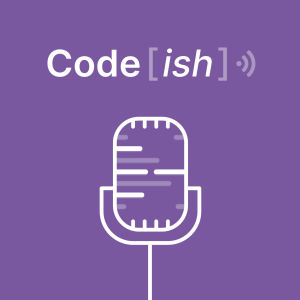
Special Episode: Creativity and Connection in a Remote Workplace
 2020-08-06
2020-08-06
Rick Newman is a Director of Engineering at Salesforce Heroku, and he's joined in conversation with Badri Rajasekar, the founder of Jamm. Jamm was created out of a need for remote and distributed teams to not only work together, but for people to feel connected and invested with each other. Under the belief that remote teams were often confronted with a deluge of emotionless texts--from Slack DMs to PR mentions to email--Jamm makes it possible to send video messages to people in your organization. Meetings can also be open access, allowing curious individuals to pop in and join conversations, or allow audio-video chats to play in the background.
Badri recalls that, early in his career, he believed that the only way people could align together was to establish stringent processes. This could take innocuous forms such as "No Meeting Mondays" or mandating formal summaries after every meeting. But now he recognizes that a culture of creative freedom within teams often results in more organic unity. Creating this organization requires clearly stated goals and trusting that individuals will be able to execute on them.
There also seems to be an artificial tension between synchronous and asynchronous workflows. Badri argues that instead, organizations should recognize that each style of work comes during different periods. Synchronous workflows are often best defined at the beginning of a spring, where product managers, designers, engineers and the like can discuss what problem they're trying to solve. Asynchronous workflows can then go and implement solutions, review code, and ship deployments. Moving past this false dichotomy lets people talk to each other when they want to, not because they need to. Video chats then take the space of being a communication system people look forward to having with each other, rather than a meeting that they are expected to participate in.
Links from this episode- Jamm provides video collaboration for remote teams
More Episodes
 2019-08-13
2019-08-13
 2019-08-06
2019-08-06
 2019-07-23
2019-07-23
 2019-06-11
2019-06-11
 2019-06-04
2019-06-04
 2019-05-28
2019-05-28
 2019-05-21
2019-05-21
 2019-05-16
2019-05-16
 2019-05-14
2019-05-14
 2019-05-09
2019-05-09
 2019-05-07
2019-05-07
 2019-05-02
2019-05-02
Create your
podcast in
minutes
- Full-featured podcast site
- Unlimited storage and bandwidth
- Comprehensive podcast stats
- Distribute to Apple Podcasts, Spotify, and more
- Make money with your podcast
It is Free
- Privacy Policy
- Cookie Policy
- Terms of Use
- Consent Preferences
- Copyright © 2015-2024 Podbean.com




